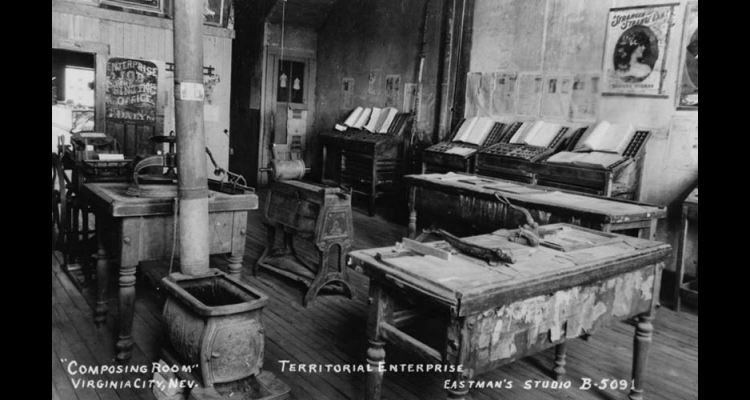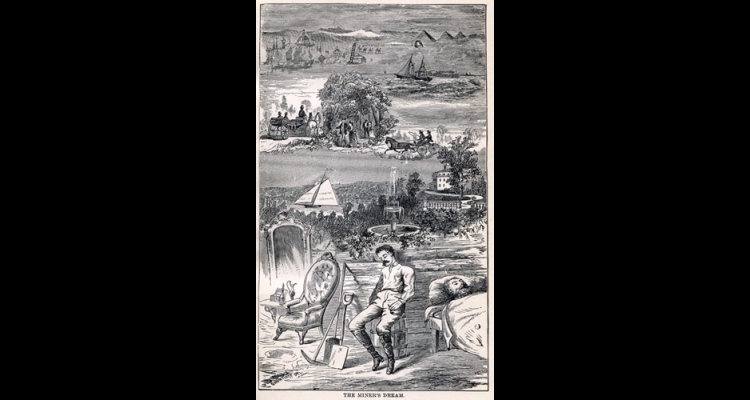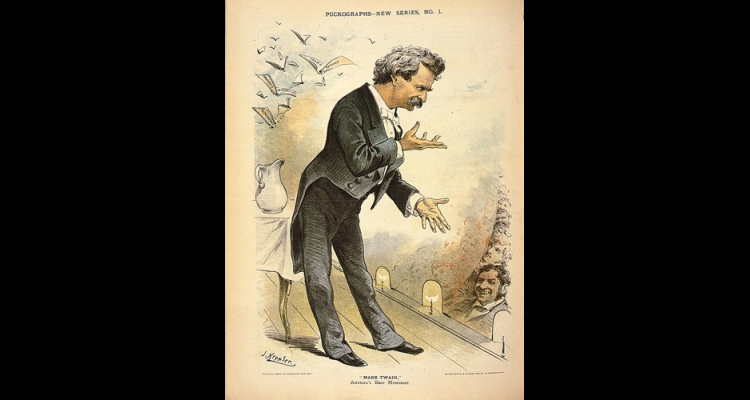Samuel Clemens
Samuel Langhorne Clemens is one of the nation's most beloved authors. As Mark Twain, he wrote such classics as Tom Sawyer (1876), Huckleberry Finn (1884), and The Prince and the Pauper (1881). His life and career are the property of several states including Nevada, which played an essential role in his development.
Clemens was born in Missouri in 1835, growing up on the banks of the Mississippi River. With the outbreak of the Civil War and like many with no appetite for battle, Clemens looked west. In 1861, the eldest son of the family, Orion Clemens, joined Governor James Nye to form a government for the newly created Nevada Territory. Orion served as secretary. Samuel accompanied his brother to Carson City, hoping for employment in civil service. He found none.
Samuel Clemens failed at mining in Unionville and Aurora. In 1862, while scraping by in Aurora, Clemens used the penname "Josh" to correspond with the Territorial Enterprise in Virginia City. His witty observations inspired editor Joseph Goodman to employ Clemens as a reporter in September of that year.
In Missouri, Clemens had experimented with the literary hoax, but at the Enterprise, he perfected the art, emulating talented veteran journalists. He became close friends with fellow reporter William Wright, who wrote as Dan De Quille. The two shared a room and antics.
Based in Virginia City and occasionally reporting from Carson City and San Francisco, Clemens fabricated stories including discussions about a petrified man and a ghastly massacre in Empire City. Covering the territorial legislature, Clemens helped form the "Third House," a deliberative body of fellow journalists who met at session's end to mock the lawmakers. During this time, Clemens began to explore his talent for giving humorous presentations.
In an Enterprise article from February 1863, Clemens first used the byline Mark Twain, apparently a reference to shallow, but safe, navigable waters. In December, he met Artemus Ward, an eastern humorist often regarded as the first stand-up comic. Ward came to Virginia City to present his nationally-famous lecture "The Babes in the Wood." He recognized Twain's talent, moved into his place for roughly a week, tore up the town, and encouraged the fledgling author to break away from the Comstock.
In the spring of 1864, Twain became embroiled in a dispute over one of his libelous hoaxes, which thrived at the fine line between humor and outrage. Facing growing anger and challenges to duel, Twain left Virginia City in May 1864.
As an emerging national humorist, Twain returned to Virginia City in 1866 and 1868 to lecture at the Maguire/Piper Opera House. He also used his western sojourn as inspiration for Roughing It (1872), a book that flowed between fact and fiction. The author's Nevada experience was far more than the source of anecdotes and the birthplace of a penname. For Twain, the cosmopolitan Comstock proved the perfect training ground with its thriving literary tradition that exploited the western tall tale to its utmost.
Article Locations
Related Articles
None at this time.




